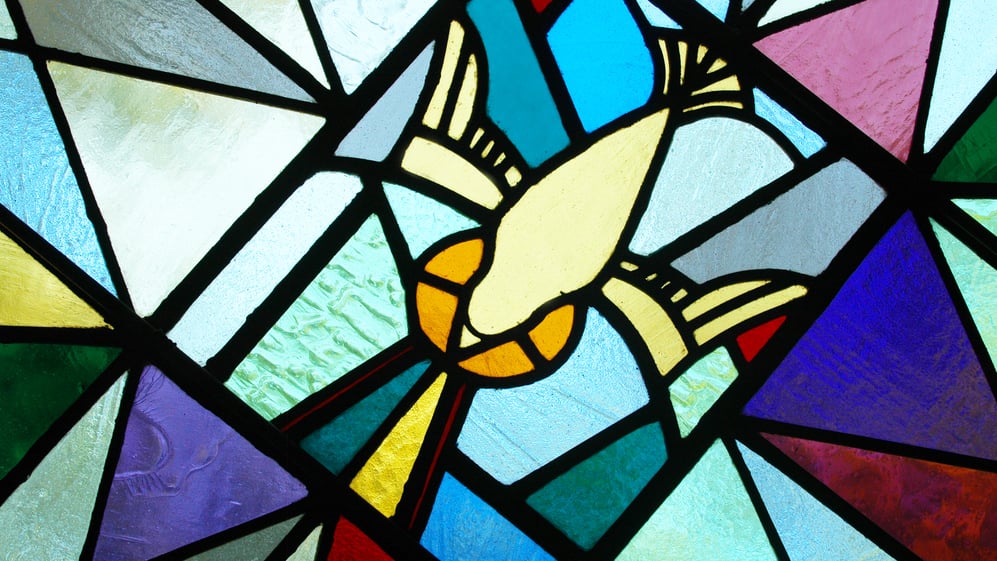The following is an excerpt from volume 1 of The Lutheran Bible Companion on the action of the Holy Spirit in 1 Chronicles and 2 Chronicles.
Work of the Spirit
In some respects Chronicles is the most “Spirit-filled” book in the Scriptures, precisely because all opposition between spirit and form, physical and spiritual, is ignored. In Chronicles, the Spirit speaks through virtually any agency, even through a pagan king such as Pharaoh Neco. Prophecy may take place at worship or elsewhere. Particularly in Chronicles the chant and psalmody of the Levitical choirs is sometimes characterized as “prophecy,” no doubt partly because of external similarities at times (and possibly also common roots) but ultimately in recognition that “all these are empowered by one and the same Spirit” (1 Co 12:11). True worship, even the most formal, is spiritual, and has an obviously celebrative and joyful atmosphere. There is no better refutation in all of Scripture than Chronicles to the earlier critical dogma and prejudice (which still lingers) that the “prophetic religion of the heart” had no room for the “sterile rituals” of the priesthood.
The same Spirit thus inspires not only priest, but king and prophet as well. David, in prophetic manner, himself receives the divine word (1 Ch 28:19 even reports his receiving temple plans “in writing from the hand of the LORD,” parallel to Moses’ inspired blueprint for the tabernacle; Ex 25:9). Likewise, David’s successors, at least the faithful ones, are favored with direct revelation, which they pass on to others, thus assuming the prophetic role. This general picture, of course, is not unique to Chronicles either, but nowhere so highlighted as by the Chronicler.
Chronicled Prophets
Naturally, it is the prophets themselves who are the most common mouthpiece of the Spirit. Especially accented is the role of the prophet as advisor to the (Davidic) king. In fact, one may wonder if Chronicles has not departed entirely from any formal or sociological sense of the word prophet, using it totally in its basal biblical sense of any bearer of divine revelation. Many of these prophets are also Levites, but apart from Chronicles’ general interest in that group, no particular significance seems to attach to the fact.
The Chronicler does much of his own teaching through extensive quotation of prophetic sermons, oracles, and prayers throughout the book. The characteristic prophetic accent on the need for prayer and repentance thus receives due stress, as well as the consequent summons to faith and action. In his study of sermons in Chronicles, Gerhard von Rad notes at least three elements that usually appear: (1) quotation of an ancient source, often prophetic, i.e., a text; (2) application of the theological principle of that quotation to some aspect of Israel’s past, i.e., one of God’s mighty acts (“Gospel”); and (3) application of the text to the present, usually a call to faith and action. If taken at face value, we have here a very important entrée to a much neglected subject: the preaching of the Old Testament.
First Chronicles 21 reestablishes an important subtheme in biblical theology: the role of Satan. He is characterized as the primary author of sin because he leads people into temptation and to disobey the Spirit of God. Whereas the book normally focuses on David’s successes, it acknowledges here one of his weaknesses.
Israel’s Service
The Chronicler’s effort to stimulate the rebuilding of Israel as a theocracy works with two interrelated divine institutions: temple (with priesthood) and Davidic monarchy (in the Holy City, Zion). David is the key figure throughout, but let us first explore Chronicles’ overriding accent on liturgy or worship. At its heart is the accent that Israel was a worshiping community, a liturgical assembly. All of life is to be worship, service. This idea, of course, underlays the priestly materials of the Pentateuch as well, and the prophets had underscored it mightily, but the political concerns of the monarchy often distracted from this center and fostered false notions of the nature of the “kingdom.” The Chronicler is motivated to assist the post-exilic community in its adjustment from a politically independent society to a religious community without political possibilities. Now that Israel’s political glory was a thing of the past, it must be underscored anew that the true vocation of the chosen people was to offer God undefiled worship in the Jerusalem temple. Not national and worldly glory but religious zeal would have to be the source of Israelite greatness and strength from here on. Israel’s hope dare not be placed in military strength or political acumen but solely in fidelity to the covenant.
The sad miscarriages of the Maccabean era vividly illustrate how difficult it was for the old Israel to learn this lesson. The Christian inevitably sees God preparing Israel for the coming of the Gospel, but, if honest, he will also be reminded how difficult it has been also for the “new Israel” on earth to stay focused on mission rather than politics.
From Lutheran Bible Companion, Volume 1, pp. 405-407. Copyright © 2014. Published by Concordia Publishing House. All rights reserved.
Scripture: ESV®.
Looking for more deep dives into the Old Testament? Discover more in the first volume of the Lutheran Bible Companion.












